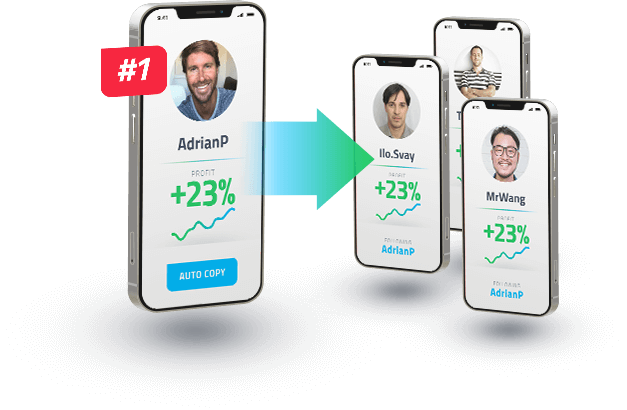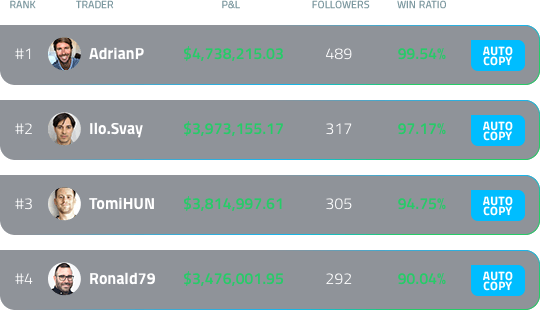How to Choose a  Broker?
Broker?
In a market exceeding US$6 trillion in daily turnover, selecting a  broker is an intimidating task for many new
broker is an intimidating task for many new  . Complicated language and an overwhelming choice of brokerages makes distinguishing between the respectable and unfit difficult.
. Complicated language and an overwhelming choice of brokerages makes distinguishing between the respectable and unfit difficult.
Ultimately, the first step is taking into account your requirements. Are you a scalper executing several trades a day with a small account or a longer-term position  operating a larger account size, and only engaging once a week? These are the types of questions you must answer prior to exploring the brokerage landscape.
operating a larger account size, and only engaging once a week? These are the types of questions you must answer prior to exploring the brokerage landscape.
Our assignment, therefore, is to peek under the hood and expose essential broker knowledge and emphasise correct
questions to ask a broker of interest.
In a Rush?
No time to read our comprehensive guide right now?
No problem. Following weeks of research, we’ve compressed the critical points and featured
Our Social Platform of choice – FP Markets
Regulation and Safety of Funds
Due to the nature of the decentralised, or over-the-counter,  market,
market,  risk and fraud is a fundamental
risk and fraud is a fundamental
concern.
Consequently, determining if a  broker supports regulatory compliance is a first port of call. Regulatory bodies oversee the operations of regulated brokers, administering strict rules and laws to safeguard
broker supports regulatory compliance is a first port of call. Regulatory bodies oversee the operations of regulated brokers, administering strict rules and laws to safeguard  accounts.
accounts.
Regulatory and legal documents are (or should be) available on all regulated brokers’ websites and you are urged to review these thoroughly.
Aside from most regulated organisations subjected to guidelines such as the ‘Net Capital Rule’—requires brokers to hold sufficient (liquid) reserves to satisfy claims—regulation also ensures brokers segregate  funds at leading global banking organisations. Client funds should never be used to meet broker expenses.
funds at leading global banking organisations. Client funds should never be used to meet broker expenses.
Top regulatory bodies to be aware of:
 Futures Trade Commission (CFTC)
Futures Trade Commission (CFTC) Commission (
Commission ( )
) Conduct Authority (
Conduct Authority ( )
) )
)Question the broker’s regulatory bodies and ensure client funds are segregated.
Why Trust Us?

The  Brokerreview website is a leading resource for online
Brokerreview website is a leading resource for online  s. Created by
s. Created by  s for
s for  s, our research provides insightful information and extensive comparisons, exploring 100s of brokers. Our recommendations, therefore, not only help newer
s, our research provides insightful information and extensive comparisons, exploring 100s of brokers. Our recommendations, therefore, not only help newer  s, but also old hands as well.
s, but also old hands as well.
Security, regulation, commissions, customer support,  and platform functionality are just a handful of factors you must take into account before choosing a broker to work with.
and platform functionality are just a handful of factors you must take into account before choosing a broker to work with.
Customer Service
As retail FX and 
 continues to gain popularity, independent
continues to gain popularity, independent  have become increasinglydemanding. And rightly so.
have become increasinglydemanding. And rightly so.
Following on from regulatory checks, a quality assessment of a broker’s customer service is a recommended second
port of call. Customer service is where  and
and  s head for when things don’t go according to plan or need additional information.
s head for when things don’t go according to plan or need additional information.
Trustworthy brokers usually deliver a 24/7 customer service operation in a multilingual setting. The most popular communication avenue is a Live Chat Service. Options to call, email and write should also be available, with contact addresses for all brokers’ offices accessible on their website.
It’s advised to test the customer service team’s response using their chat function on at least three occasions, preferably in the morning, then midday and in the evening. Waiting times should be short (less than a minute) and answers clear and to the point. There’s nothing worse than communicating with incompetent representatives.
Broker Business Model
Recognising there’s a number of broker business models is imperative and is considered a third step in your search for a broker to work with.
 brokers operate either through a dealing desk or a non-dealing desk model, as well as a ‘hybrid’ between the two. They may also be referred to as A-book (counterparty to client trades but directs orders [risk] to liquidity providers) and B-book (market makers—liquidity providers that retain client positions on their books).
brokers operate either through a dealing desk or a non-dealing desk model, as well as a ‘hybrid’ between the two. They may also be referred to as A-book (counterparty to client trades but directs orders [risk] to liquidity providers) and B-book (market makers—liquidity providers that retain client positions on their books).
Dealing desk models (B-book) create liquidity for clients—the counterparty—and are often stated as ‘market makers’.  with a market maker, nonetheless, does open up a potential conflict of interest. However, most well-known reputable brokers, which work similar to dealing desks in large
with a market maker, nonetheless, does open up a potential conflict of interest. However, most well-known reputable brokers, which work similar to dealing desks in large  institutions, simply provide liquidity. It’s also important to realise market makers can (and do) offer fixed spreads, though some provide a variable spread and commission-based structure.
institutions, simply provide liquidity. It’s also important to realise market makers can (and do) offer fixed spreads, though some provide a variable spread and commission-based structure.
A non-dealing desk operation (A-book) remains the counterparty to your trades though offsets the position upstream to liquidity providers. ECN brokers (an aggregation of quotes from multiple liquidity providers), STP brokers (orders routed to a broker’s liquidity provider) and DMA brokers (access to a genuine exchange price feed) are normally classified as non-dealing desk brokerages. Brokers in this category work with what’s known as variable spreads and commission arrangements.
Ultimately, as long as the broker is reputable, using either a dealing desk or non-dealing desk system is an option.
Fees and Commissions
Fees and commissions are an important element in broker selection. Understanding how a  broker generates revenue is the next proposed step in your broker quest.
broker generates revenue is the next proposed step in your broker quest.
When speaking with  , the term ‘spread’ is commonly brought up in conversation. Spread refers to the difference between the Bid (the price
, the term ‘spread’ is commonly brought up in conversation. Spread refers to the difference between the Bid (the price  can sell) and the Ask (the price
can sell) and the Ask (the price  can buy): the Bid/Ask spread.
can buy): the Bid/Ask spread.
It is suggested to enquire whether the broker adopts a variable or fixed spread system. Points to be aware of are a fixed spread tends to remain within a fixed range (2-3 pips, for example) irrespective of market volatility. Variable spreads, as the name implies, varies dependent on market volatility. If a broker is selected that adopts a fixed spread,concerns regarding spread widening during periods of volatility is lessened. Yet, if you normally trade in active market sessions, you may find variable spreads offer a cheaper alternative than a fixed spread market.
Commissions vary among  brokers, an amount deducted from your account equity prior to executing a trade. Swap is another consideration for
brokers, an amount deducted from your account equity prior to executing a trade. Swap is another consideration for  who keep positions open overnight (beyond 17:00 pm EST).
who keep positions open overnight (beyond 17:00 pm EST).
Some brokers also have inactivity fees to consider; others support a no-fee structure on deposits and withdrawals. These are points worth asking brokers about, enabling a clear comparison. Ways of avoiding inactivity fees are by executing a trade on your account.
The key takeaway, of course, is to fully understand the commission structure before opening an account with a broker. Reputable  brokers have this information displayed on the website in an easy-to-read format. Contact their customer support if unsure of any terminology.
brokers have this information displayed on the website in an easy-to-read format. Contact their customer support if unsure of any terminology.
Also, question the broker to ensure what  rate you’re eligible to receive as this affects the initial margin percentage rate you receive.
rate you’re eligible to receive as this affects the initial margin percentage rate you receive.
Account Types
Account types differ across the broker spectrum, as does minimum investment (starting deposit). Below is an overview of the various account types you may come across.
Standard Accounts are common among  brokers, generally carrying a higher variable ‘spread cost’ though areoften accompanied with a zero-commission arrangement. Given the higher spread, these accounts are favoured among swing
brokers, generally carrying a higher variable ‘spread cost’ though areoften accompanied with a zero-commission arrangement. Given the higher spread, these accounts are favoured among swing  and position <
and position < (longer-term market participants).
(longer-term market participants).
Additional Accounts alongside the standard offering—often adopting different account labels, such as ‘Raw Account’—commonly take on a lower variable spread range, but are usually subject to commissions (per lot). You’ll see  and day
and day  favour these account types, encouraged by lower spreads.
favour these account types, encouraged by lower spreads.
Bottom line, read account features before a decision is made to ensure it meets your personal (and  ) needs. If uncertain, contact their customer support team and request further clarification.
) needs. If uncertain, contact their customer support team and request further clarification.
Market Coverage
By this point, you should have shortlisted the worthiest brokerages. Further refinement is necessary, however.
While most  brokers offer a wide range of currency pairs to trade,
brokers offer a wide range of currency pairs to trade,  may elect to explore additional markets, such as individual shares,
may elect to explore additional markets, such as individual shares,  ,
,  and
and  currencies, for example. The majority of respectable
currencies, for example. The majority of respectable  brokers provide a dedicated webpage demonstrating the key markets they offer.
brokers provide a dedicated webpage demonstrating the key markets they offer.
The best brokerages will at least offer access to more than 40 currency pairs (major, minor and exotic currency pairs), individual shares,  , major
, major  indexes and
indexes and  currencies.
currencies.
Does the  broker provide the
broker provide the  instruments you wish to trade?
instruments you wish to trade?
Confirm the shortlisted  brokers cover your traded markets, as well as facilitates access to a range of alternative markets.
brokers cover your traded markets, as well as facilitates access to a range of alternative markets.
 Platforms
Platforms
Meta 4 (
4 ( ) and Meta
) and Meta 5 (
5 ( ) are widely accepted third-party
) are widely accepted third-party  platforms among the retail
platforms among the retail  community; both should be able to be downloaded from the
community; both should be able to be downloaded from the  broker’s website to your desktop computer or mobile device.
broker’s website to your desktop computer or mobile device.
 commands the lion’s share in terms of usage and, by extension, brings with it an enormous community of
commands the lion’s share in terms of usage and, by extension, brings with it an enormous community of  .
.
 was largely constructed to facilitate
was largely constructed to facilitate 
 (developed in 2005), while
(developed in 2005), while  (developed in 2010) is a multi-asset
(developed in 2010) is a multi-asset  platform available for
platform available for  on
on  , futures and
, futures and  markets. A number of differences exist between the two, though both work with a similar interface. It’s important to note that many
markets. A number of differences exist between the two, though both work with a similar interface. It’s important to note that many  appreciate the Depth of Market (DOM) option with
appreciate the Depth of Market (DOM) option with  (broker fed).
(broker fed).
Therefore, it is expected that the majority of  brokers provide these platforms.
brokers provide these platforms.
Questions to ask the  broker:
broker:
1. What  platforms are offered?
platforms are offered?
2. Are proprietary  platforms available, and is there an additional fee?
platforms available, and is there an additional fee?
3. Do each of the platforms accommodate various technical indicators and price action tools?
4. Is Depth of Market (DOM) available?
5. What risk management features do the platforms provide? Is there an option to use a trailing stop, for example, or do we have to download this from an external source?
Research and Education
A dedicated research platform provided by the  broker is a plus.
broker is a plus.
Industry experts delivering daily and weekly market analysis benefits newer  and helps older hands stay abreast with the ever-changing market landscape. The majority of brokerages offer this service for free; others require a minimum deposit to access this service.
and helps older hands stay abreast with the ever-changing market landscape. The majority of brokerages offer this service for free; others require a minimum deposit to access this service.
In addition to market analysis—both technical and fundamental analysis—many brokers run regular webinars and seminars. This allows  to learn in an interactive environment, with many organised in multiple languages.
to learn in an interactive environment, with many organised in multiple languages.
For those interested in furthering their understanding in the  market, selecting a broker that offers a continuous flow of educational material, regular webinars and market analysis is a MUST.
market, selecting a broker that offers a continuous flow of educational material, regular webinars and market analysis is a MUST.
It is recommended to enquire about the research and education offered by the broker.
Reviews
Not many companies escape the wrath of consumer scorn, and  brokers are no different.
brokers are no different.
Although researching a broker’s credibility involves scanning through reviews,  and
and  s are urged to adopt a ‘guarded’ stance and accept only dependable sources.
s are urged to adopt a ‘guarded’ stance and accept only dependable sources.
Some negative reviews are losing  in search of ‘comfort’, seeking to soothe their wounds by blaming others for their failures.
in search of ‘comfort’, seeking to soothe their wounds by blaming others for their failures.
At this point, you will have filtered your broker choice down to one or two preferences. The main thing is to remain objective when reading broker reviews and factor in other elements that have been highlighted in this article.
Our Choice
Based on research, FP Markets stands tall as a one-stop shop for  and
and 
 .
.
We found FP Markets deliver an outstanding service across the board:
 Broker with 16 years of industry experience.
Broker with 16 years of industry experience. spreads available from 0 pips and competitive
spreads available from 0 pips and competitive  up to 1:500.
up to 1:500. ,
,  and
and 
 platforms.
platforms.

















 with
with  Choice- FP Markets
Choice- FP Markets